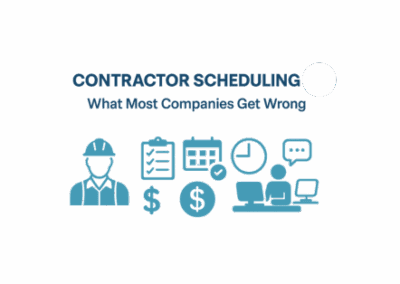Are you a venue looking to hire a new manager? Are you a manager trying to plan your next big event? Event planning skills are a must-have for anyone in the Events and Venue management space. The key to success for any event is essentially down to how well the event is managed, right?
Event planning and the required skill set has definitely changed over the last few years. Yes, the basic things like interpersonal skills and a general understanding of events will always be there. However, as technology evolves and workforces change, event planners need to bring their existing event experiences and pair them with the critical skills below.
Organizational Skills
As mentioned above planning and managing a successful event means having to juggle lots of different tasks. All successful event planners have very strong organizational skills. Arguably, this is the most important event planning skill you will need as a manager.
You have to manage client timelines, keep track of budgets, and coordinate with vendors just to get the event planned. On the day of the event, you have to make sure everything (and everyone) is in place. Also, it falls on you to create, manage and maintain the post-event checklist.
Due to all of these requirements, managers need to be on top of everything, know what’s involved in every element of the event, and be up-to-date on all of the details. There is a range of tools and resources you can use to do this. Social tables is a great tool that can help with venue sourcing, event diagramming, and guest management. For larger-scale events and venues, it also has a CRM element that can really help you stay on track of everything!
Networking
Most event managers understand the importance of networking. By nature, the events industry is people-centric and relationship based. Networking is one of those event planning skills that has many benefits.
First, you’ll naturally meet and build relationships with other event professionals and vendors. This benefits you by helping you expand your pool of resources for planning your events.
However, it also benefits you when those vendors and professionals start to refer you to their own clients for events and venue bookings. Everybody wins. While event planning is a competitive space, networking helps you use that competition to your advantage.

If you want to get started with networking, there are some key steps you can take. Attend industry networking events in your space. If you help plan/host weddings, wedding showcases and tradeshows are a great start. The same applies to corporate events, healthcare events, and basically every category of event out there – there is a network waiting to be made!
Also, we can’t forget about the power of social media. LinkedIn, Facebook, and other online platforms are great for creating a network and building an engaged community.
Did you know we have an eBook on the Future of Event Management too?
Communication
Effective communication is often overlooked as an essential event planning skill. Your communication skills will help establish you as a leader of your team. This, in turn, helps you keep everyone on track and clearly set expectations and goals.
With strong communication skills, you are better able to share your vision and get your team on board. It also helps you avoid having to re-explain assignments and repeating tasks that weren’t completed as needed. When you communicate well, you save time and effort.
As far as event planning skills go, communication can be one of the more difficult ones to get right. You want to be firm and clear, but also respectful and empowering. You might even have different styles of communication for clients, vendors, and your team, depending on what you need to achieve. Knowing how to speak to people is invaluable.
Problem Solving
Even if you have all of your event planning skills up to scratch, you can be sure that things will still go wrong somewhere along the line. With that in mind, problem solving skills are essential. Some event planners keep a toolkit on hand with emergency items for unforeseen challenges. Things like duct tape, batteries, wires, and a notebook always come in handy.
Having copies or backups of important materials such as presentations, posters, handouts, etc, is also a great idea, as things often go missing on event day.
Unfortunately, the best way to improve this event planning skill is to throw yourself in at the deep end. Thinking on your feet creatively often happens best when under pressure, and gets better the more you do it. As you build your experience in the event planning space, you will come across more and new problems to solve. Once you do it once, you have that solution in your toolkit for the next time it crops up, and you won’t be caught off guard.
Workforce Management
Often overlooked as an essential event planning skill, workforce management skills can truly make your life easier. The core principle of workforce management is having the right people in the right place at the right time. With event planning in mind, you can see how important this is. First off, you want to be sure you have enough staff, but not too much to keep costs in-line.
You also want to make sure the people with the right skills are being utilized in the right areas. This is all part of effective workforce management.

Luckily, there is software out there to help with this, like Celayix! Celayix is the perfect solution for event managers for many reasons. Our workforce management software allows you to attach qualifications and certifications to employee records. With that, you can create rules for your schedule to ensure that only those who are qualified and trained in certain areas are assigned to those shifts.
You can also track pay rates and hours to ensure that events don’t go over budget when it comes to staffing. Event ratios are a great way to ensure that you are scheduling the optimum number of employees based on the number of people attending. Plus, even if you’re not tech savvy, our platform is user-friendly and may even be able to integrate with any other event management software you already use!
If you’d like to hear more about how Celayix can help improve your event planning skills and improve your events, get in touch today! We can set up a tailored demo to show you exactly how you can utilize our software to maximize results.
Always be learning
The key thing with event planning skills is to always be learning and growing. If the last 2 years have taught us anything, it’s that things truly can change overnight. It’s important to be flexible, adaptable, and open to new solutions. Never rest on your laurels and think you know everything there is to know about event planning.
As you continue to grow and develop your event planning skills, you’ll quickly see how valuable that is. This will help you expand your client list, charge more for your services, and save time, effort, and money while planning events!




